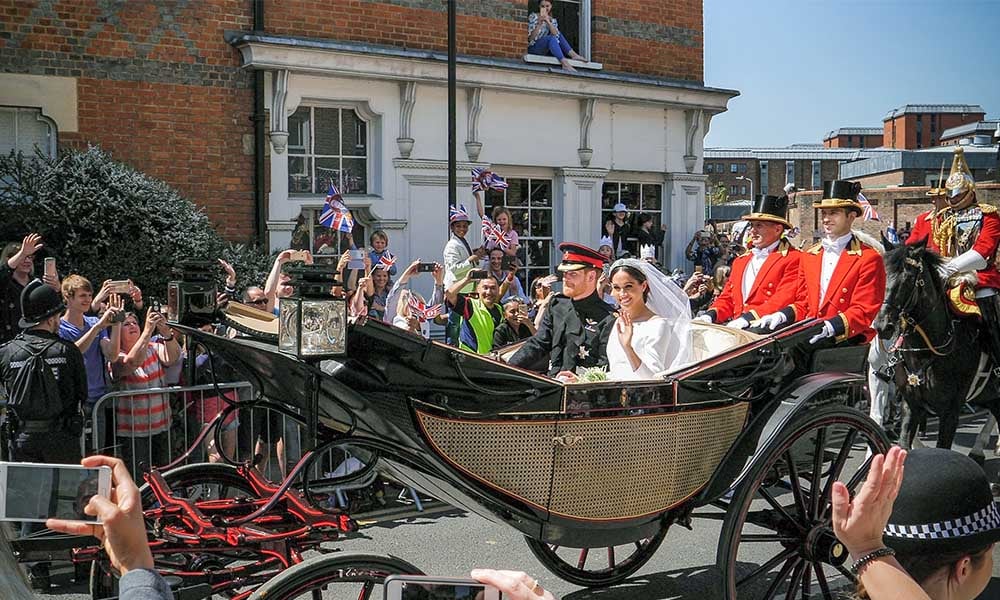A leading estate planner tells WP about the tax pitfalls the royal couple might encounter as they walk away from official duties

Prince Harry and Meghan Markle’s decision to step back from royal duties and seek “financial independence” as they split their time between the UK and Canada presents a massive job for estate planners.
Mariska Loeppky, director of tax and estate planning at IG Wealth Management, told WP about the potential tax pitfalls and jurisdictional red tape the royal couple might get tied up in if their transition isn’t managed well.
Depending on how the particulars fall, they could end up paying tax in three jurisdictions. The same applies for income and assets. Maybe they have enough to live long-term without returning to work, but a lot of that is dependent on what jurisdictional rules they fall under and what exceptions they might be entitled to. Now they’ve wrapped up their talks with the Queen, the royal couple need to find an estate planner.
“I would pull in a lot of people,” Loeppky said, when asked if she’d take the job. “In a situation like this you need to put a lot of thought into what it should look like and revisit it every couple of years.”
Loeppky’s biggest concern was tax liability. Meghan is a US citizen, and therefore expected to pay US tax on all her global income. If they spend enough time in Canada to be considered resident, they could end up paying Canadian tax as well, not to mention the royal tradition of paying UK income tax voluntarily.
Loeppky says she has a number of clients with situations not wholly unlike Harry and Meghan’s, minus the royal titles. Many high-net-worth clients will spend much of their time abroad, though maintain enough links to Canada that they end up considered tax resident in Canada. Without established roots elsewhere to draw on, those clients remain subject to Canadian tax.
“Whenever we're dealing with clients like this, we talk about everything very proactively,” Loeppky explained. “[We ask] how much time you're going to be spending there? What assets do you plan on holding? Do you have enough to live off? Do you have any exposure to foreign currency exchange? And in what currency?”
This long conversation is what Harry and Meghan’s financial advisor is going to have to start with them. It may be tough to sit down a couple like the royals, who’ve lived lavishly for so long, and have a hard chat about what their financial independence might actually entail.
That chat will have to touch on citizenship, visa regulations, and even medical coverage. Loeppky doesn’t know whether they’ll need a visa to live in Canada, and whether they might get medical care covered.
Even the TFSA, an estate planner’s standby tool, might not apply to the royal couple. Depending on how they split their time even that account might be subject to tax.
Based on tax burden alone, Loeppky actually thinks the royals would pay the least if they spent most of their time stateside. A maximum tax rate of 37 per cent would apply in the US, as opposed to almost 50 per cent if they lived in BC. Of course, there are other considerations the royals will have to take. A move to the US for tax purposes wouldn’t play well in the Daily Mail, for example.
There might be a lesson for advisors in Meghan and Harry’s move: take the initiative when clients say they’d like to spend time abroad.
“And I think the biggest thing for me is that when a client comes to you and says, ‘I want to spend a lot of time abroad.’ Don't disregard that. Make time for it,” Loeppky said. “Anything is possible. You just need professional help navigating the rules.”



